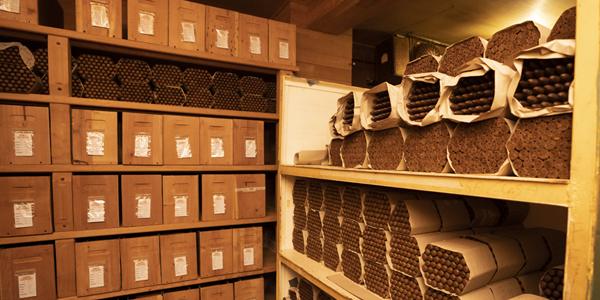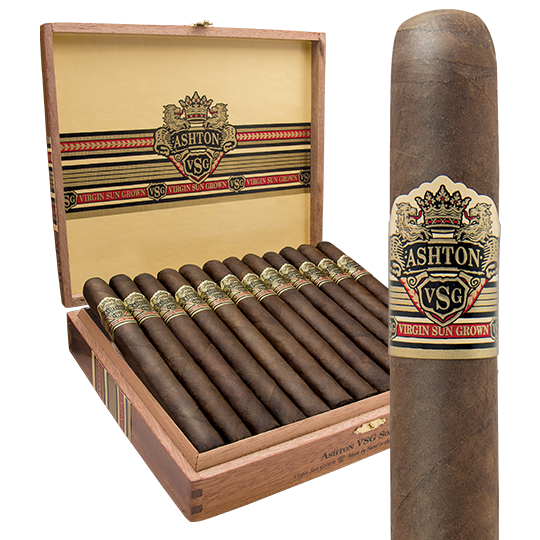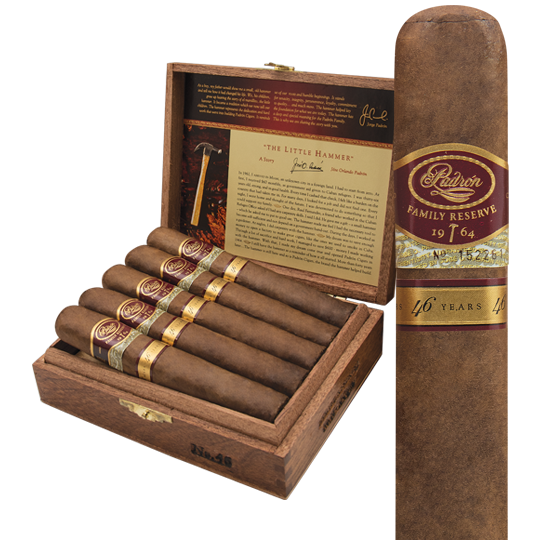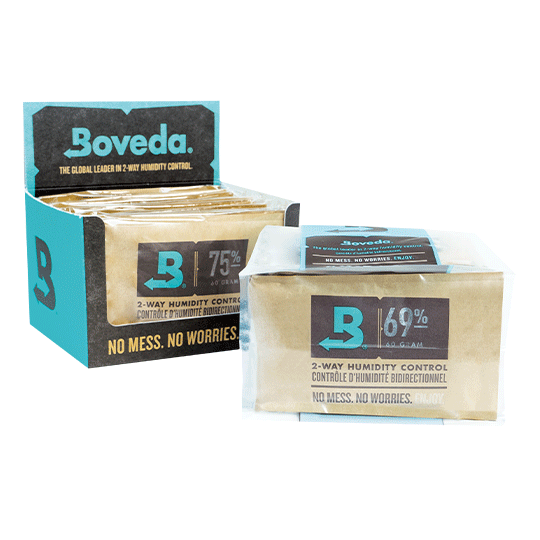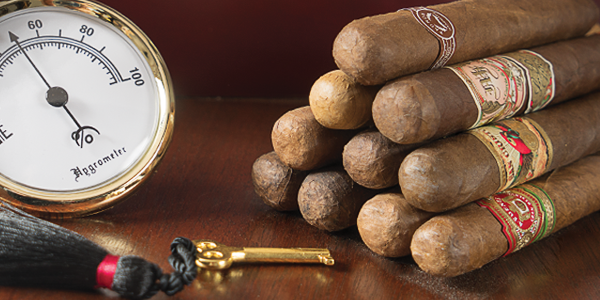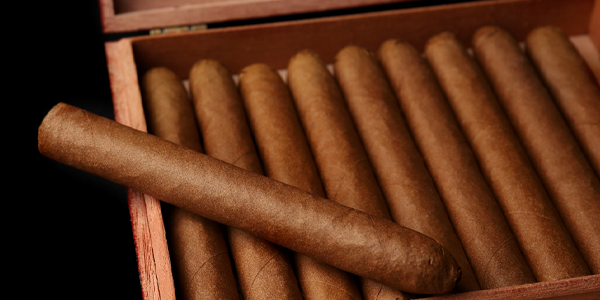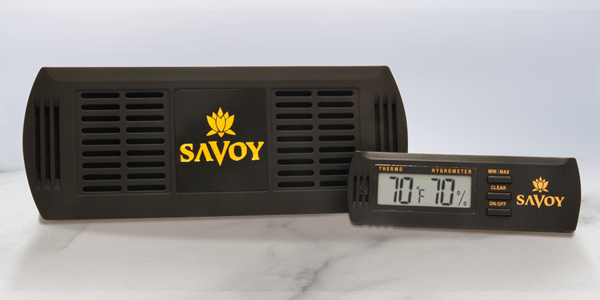Do Cigars Get Better With Age?
Does aging cigars make them better? Most of the time, but not always. Cigars are similar to wine when we consider the aging process. Vintage wines peak after a certain period of years, after which the flavor can turn. Cigars display similar tendencies – but it entirely depends on the blend. Know that a bad cigar will never become a good cigar no matter how long you age it. The best cigars to age taste amazing if you’re patient.
Allowing your cigars to rest for an extended period before you smoke them will rarely do any harm, but does it make them better? During the aging process, the oils in the binder, filler, and wrapper leaves meld into a more uniform profile. A generally mellower and more refined flavor emerges. Aficionados debate whether a given cigar is improved from aging, or if it is better smoked straight off the store shelf. Here is some perspective from your pals at Holt’s on the aging process.
How Long Should You Age Cigars?
The best way to know whether aging benefits a cigar you already know you like is to buy a few and smoke them at different intervals as you store them. Buy a half dozen Padron 1964 Anniversary Exclusivos, for example. Smoke one off the store shelf and set the rest aside in your humidor. Smoke one after four weeks and again after two or three months. Take note of the cigar’s tasting notes and its overall strength. Then wait and smoke one after six months and another after a year.
Meaningful transitions of taste occur with each duration of rest, but how noticeable really depends on the cigar. If you like the way your cigar tastes after its been aged, continue resting your cigars to achieve optimal flavor. You can age cigars for a decade or more, as long as you maintain adequate humidity and temperature levels.
Slightly lower humidity levels (64% to 68% RH) and slightly cooler temperatures (63 to 68 degrees) benefit the aging process. Because fluctuations in temperature and humidity are bad for cigars, moderately lower levels are suggested for greater consistency.
Aged at the Factory vs. the Store Shelf
All premium tobacco is fermented and aged for several months if not years before it is rolled into a cigar. The best cigars rest for several additional months if not years in a controlled environment at the factory after they are rolled but before they are shipped for sale. Premium cigars are blended to deliver the taste and aroma the cigar-maker intended as soon as you buy them from a retailer.
However, not all retailers sell cigars at the same pace. In some stores, a single box could sit for a year or longer before it’s purchased. At Holt’s, we sell cigars as fast as lightning. Few boxes spend more than a few months in our possession before they’re bought and shipped direct to your doorstep. In either case, it’s critical to buy your cigars from a reputable shop where the temperature and humidity are monitored and maintained to keep the cigars fresh.
You might even encounter an occasional box of hidden gems – cigars with old boxes or bands that have been out of print, indicating the cigars could be several years old. Connoisseurs who know what they’re looking for inspect cigar boxes for dates and stamps to indicate the age of the cigars. There are also diehard cigar lovers who only smoke cigars they’ve personally aged for a period years or longer. They buy new cigars, but will mark the boxes and set them aside to smoke years later.
Your Humidor Matters
Do you store your cigars in a traditional cedar-lined humidor with a humidification unit, a coolerdor, or a Boveda Humidor Bag? How you store your cigars makes a difference in how they age. Fancy handmade Elie Bleu humidors cost thousands of dollars because they are designed to age premium cigars with unrivaled finesse.
Regardless of the environment, any cigars you store in the same humidor will eventually share elements of taste. Cigars are like sponges and they absorb the flavors of what they’re near. A lot of cigar lovers like the way different Nicaraguan and Dominican cigars influence one another when they are aged together. As a precaution, never store flavored or infused cigars with traditional non-flavored cigars, unless you want all your cigars to assume a flavored profile.
Pros of Aging Cigars
Recently, I had the pleasure of indulging in a handful of Ashton VSG cigars from the year of the blend’s debut: 1999. They had been set aside at the Fuente factory where they were rolled over twenty years ago. While the robust profile VSG is known for had mellowed considerably, the flavor was no less magnificent and easily placed the cigars among the best I’ve ever smoked. Two decades doesn’t pass overnight and it is a special treat to indulge in the rare and distinct flavor of VSG after such an extended amount time.
Cons of Aging Cigars
Many cigars will age quite nicely for five or six years, after which a precipitous drop in strength and complexity takes place. A cigar’s flavor can dissipate if too much time passes. I’ve aged a number of strong and spicy cigars rolled from potent Ligero tobaccos. The robust zesty taste they displayed when I first smoked them had all but vanished when too much time elapsed. The cigars weren’t bad and were entirely smokable. However, the spicy taste and aroma that drew me to them in the first place was long gone, in favor of a less-complex, somewhat bland profile.
Additionally, cigars that have been aged a long time at the factory may not improve much with more aging. Padron Family Reserves are rolled with tobaccos that have been aged for ten-year minimums. By the time you buy one, the taste is so refined, it’s tough to convince a cigar lover to hang onto them for another few years.
When you age cigars for a long time, you should smoke one from the batch you’re sitting on at least a couple times a year, if possible, to monitor any noticeable changes in intensity or complexity. Smoke them when you feel they’ve hit a sweet spot in the aging process. Sometimes when you age cigars, you’re rolling the dice.

